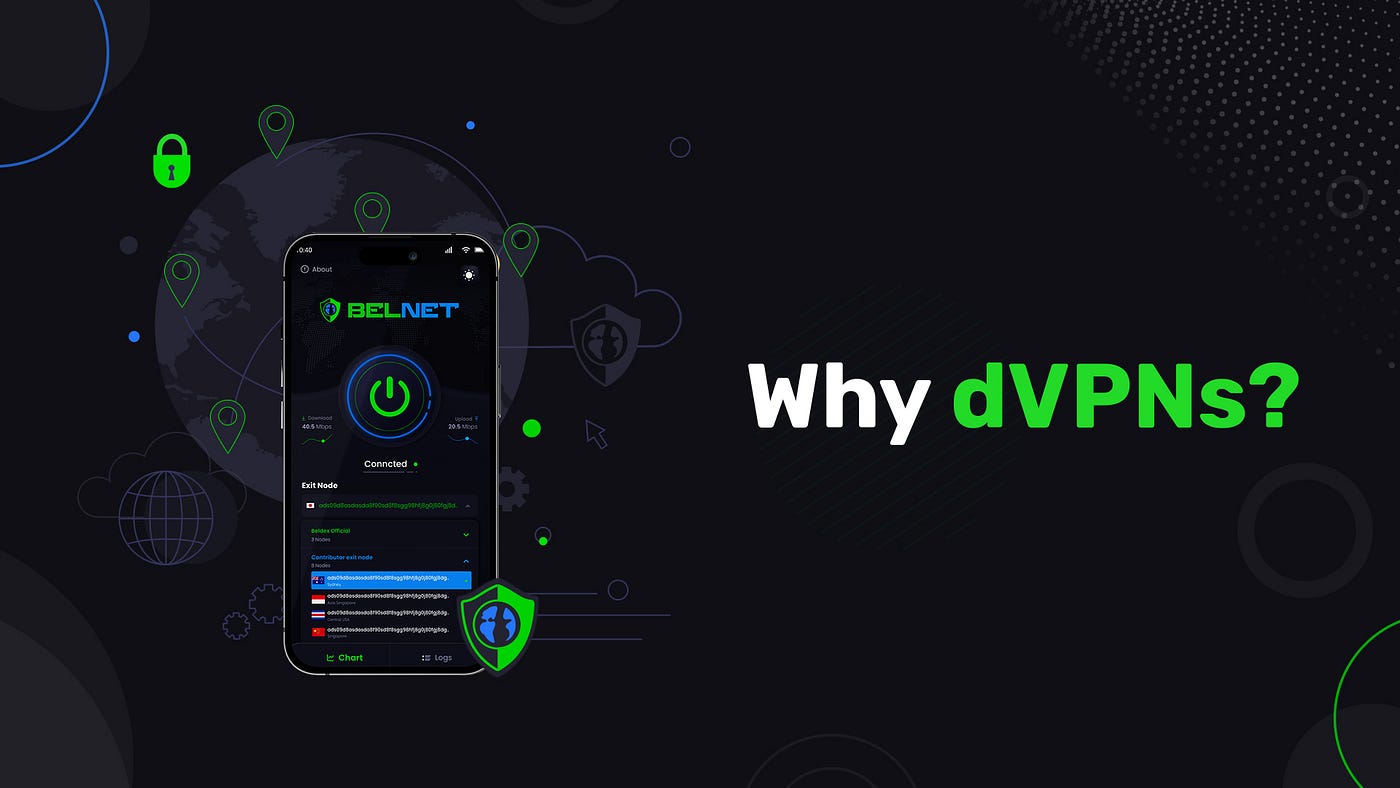As online privacy concerns grow, VPN technology continues to evolve. Traditional VPNs rely on centralized servers, which can be vulnerable to data leaks, surveillance, and cyberattacks. Decentralized VPNs (dVPNs), powered by blockchain technology, are emerging as a potential solution to these issues. This article explores how dVPNs work, their benefits, and whether blockchain can truly enhance online security.
What Is a Decentralized VPN?
A decentralized VPN (dVPN) is a network where users share bandwidth and resources instead of relying on a single service provider. Unlike conventional VPNs that operate through centralized servers, dVPNs leverage blockchain technology and peer-to-peer (P2P) networks to provide secure and private internet access.
Key Features of Decentralized VPNs:
- No Central Authority – Traditional VPNs store user data on company-controlled servers. dVPNs remove this risk by distributing data across a network of nodes.
- Peer-to-Peer Architecture – Users contribute bandwidth, making censorship and surveillance more difficult.
- Blockchain Security – Transactions and network activity are recorded on an immutable ledger, reducing risks of manipulation.
How Does Blockchain Improve VPN Security?
1. Elimination of Centralized Risks
Standard VPNs operate under companies that could log user activity, get hacked, or be forced to hand over data. Blockchain-based VPNs eliminate these risks by using a decentralized model where no single entity controls the network.
2. Enhanced Anonymity
Blockchain technology allows users to connect through randomly selected nodes without revealing their identity. Transactions within the network are encrypted, ensuring greater privacy.
3. Improved Resistance to Censorship
Governments and ISPs often block VPN services by blacklisting their IP addresses. Since dVPNs use a constantly changing set of user-generated nodes, they are more difficult to detect and restrict.
4. Transparent and Open-Source Model
Blockchain networks operate on open-source protocols, meaning anyone can inspect the code. This transparency reduces the risk of hidden security flaws or unethical practices by VPN providers.
Challenges and Limitations of dVPNs
1. Speed and Performance Issues
Since dVPNs rely on volunteers sharing their bandwidth, speeds may fluctuate depending on the number of active users. Unlike centralized VPNs with optimized servers, performance may be less consistent.
2. Trust in Node Operators
While decentralization removes a central authority, it also introduces new risks. Users must trust that node operators are not compromised, as malicious actors could potentially intercept traffic.
3. Scalability and Adoption
Blockchain-based VPNs are still in their early stages. Many users remain unfamiliar with decentralized networks, and widespread adoption is required for these systems to function efficiently.
Leading Decentralized VPN Projects
Several dVPN projects are working to integrate blockchain technology with secure internet access:
- Orchid – Uses a P2P bandwidth marketplace where users pay with cryptocurrency.
- Mysterium – A decentralized network that allows users to sell spare bandwidth in exchange for tokens.
- Sentinel – Focuses on creating a censorship-resistant, privacy-first VPN ecosystem.
Will dVPNs Replace Traditional VPNs?
While decentralized VPNs offer many advantages, they are unlikely to fully replace centralized VPNs in the near future. However, they provide an additional layer of security and anonymity that privacy-conscious users may find appealing. As blockchain technology matures, dVPNs may become a more viable alternative.
Decentralized VPNs offer an innovative approach to online privacy by removing central control, enhancing security, and reducing censorship risks. While they still face challenges like performance inconsistencies and adoption hurdles, blockchain-based VPNs are shaping the future of online security. As technology progresses, dVPNs may play a crucial role in the next generation of internet privacy solutions.
